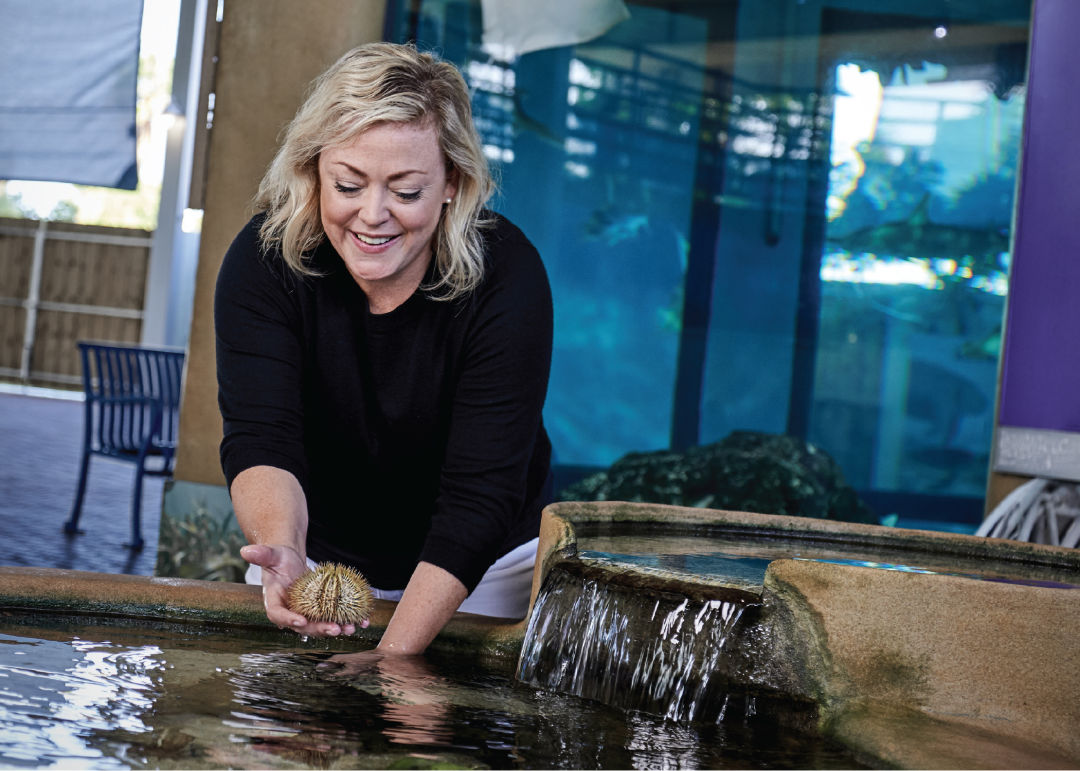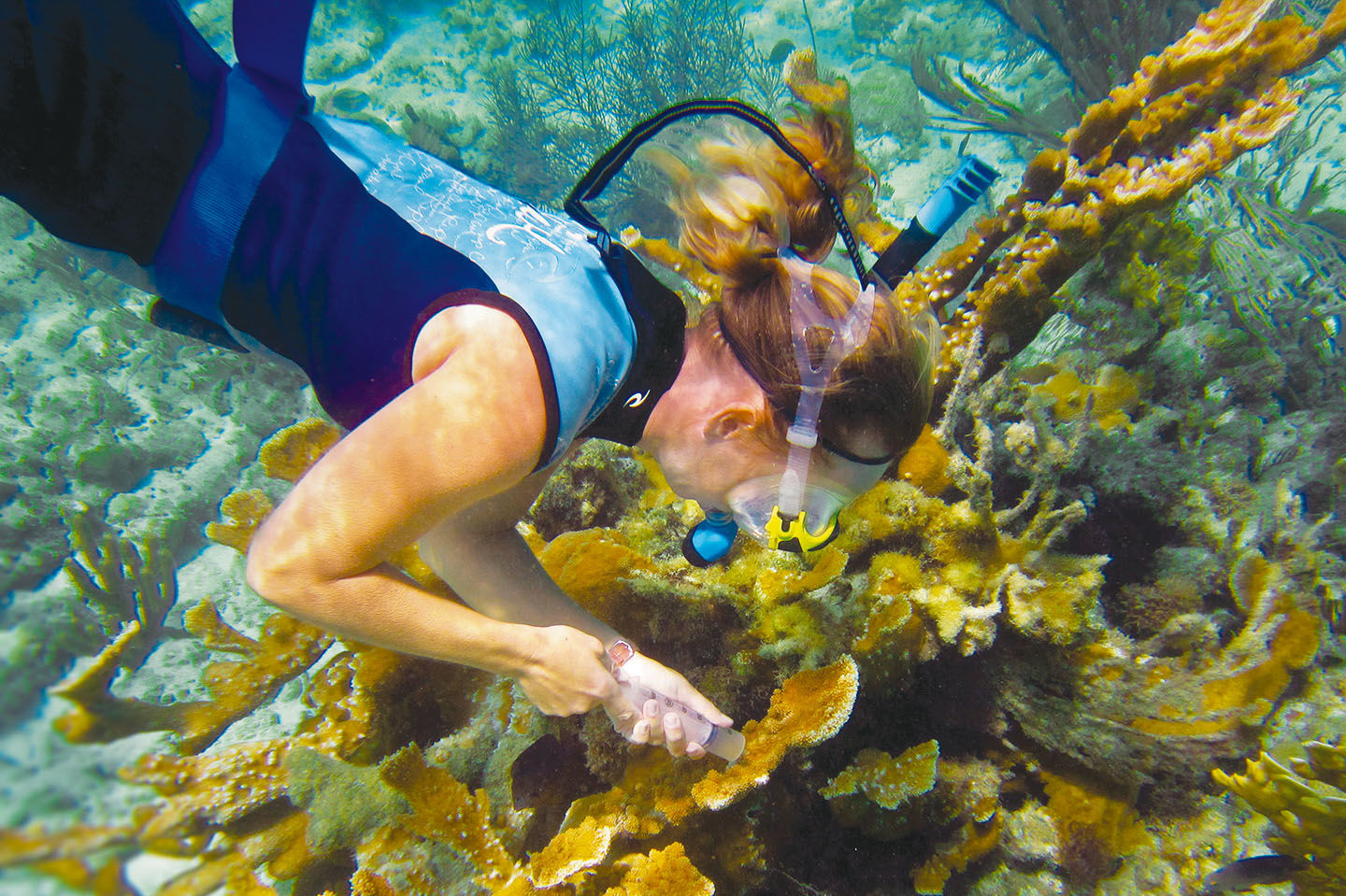Aly Busse Spreads the Gospel of Marine Science to Area Minority Students

Aly Busse
Image: Alan Cresto
Statistics show that just 17.5 percent of U.S. STEM students and 11 percent of students who receive marine science degrees are minorities. Women are also underrepresented, with just 26 percent taking jobs in STEM fields.
As assistant vice president for education at Mote Marine Laboratory & Aquarium, Aly Busse is working to change this. “The goal,” she says, “is for half our programming to be geared toward reaching underrepresented audiences.”
Under Busse’s leadership, Mote has received a prestigious, three-year, $1.5 million grant to serve as the lead institution in establishing the Louis Stokes Alliance for Minority Participation: Marine Science Laboratory Alliance Center of Excellence. As a grant recipient, Mote will provide research and training opportunities to minority students and aim to increase the number of students earning undergraduate degrees in marine science.
In partnership with the Boys & Girls Club of Sarasota County, Busse, 41, also founded Mote’s Ocean Guardians program, in which students work side-by-side with Mote scientists, volunteer with its Community Outreach team and participate in real-world experiences over a nine-week period.
The outreach is paying off. In 2017, Mote reached 9,613 minority students, and in 2018, that number rose to 9,990. Perhaps most exciting is Mote’s planned $130 million Science Education Aquarium (SEA) at Nathan Benderson Park, which is expected to welcome 60,000 students each year free of charge. “We’re building the entire aquarium around learning and teaching laboratories,” Busse says. “We’re going to have three different STEM teaching labs, maker spaces and more. We want to improve access to scientific equipment and allow kids to see real science happening.” Each classroom will include an educator and a Mote scientist, so students can see them at work.
The ultimate goal, Busse says, is to offer authentic experiences that directly relate to students’ lives—and empower them to be advocates for the ocean and the environment. “We need people who’ve come from different backgrounds and life experiences to help solve problems the oceans are facing,” she explains. “The more diverse voices, the better.”



